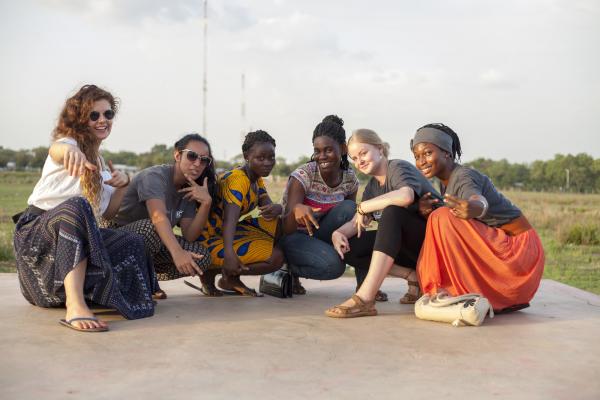ICS Social Return on Investment Evaluation
We believe in the value of youth volunteering, recognising that the experiences of volunteering, and the skills developed, are crucial for a young person’s personal and professional development.
The learning journey that accompanies ICS volunteers through their time on the programme therefore supports this development and encourages the journey towards active citizenship, with alumni becoming agents of change in their own communities and beyond.
Commissioned by VSO, and delivered by NEF Consulting, the ICS Social Return on Investment Evaluation explores the long term return on investment of youth volunteering, and the socio-economic value that volunteers generate for themselves as a result of the skills and experiences gained from ICS.
Download the full ICS Social Return on Investment Evaluation (PDF)
Key findings
Social return on investment
For every £1 spent on the ICS programme, an estimated £4.64 in social value is created.
The ICS programme is estimated to have created benefits equivalent to £176,962,812 for UK volunteers at a total cost of £38,166,808. The SROI ratio is 4.64:1, meaning that for every £1 spent on the programme an estimated £4.64 in social value is created.
Female UK volunteers and UK volunteers from lower income households experienced higher levels of impact from the ICS programme. Female volunteers derived a higher estimated impact from ICS than male volunteers and this was mainly due to a high proportion of female volunteers stating that ICS had improved their confidence.

UK volunteers from lower income households who had received free school meals also saw a much greater impact on their confidence and active citizenship relative to those who had never received free school meals.
Increasing confidence
Increase in confidence was one of the most widely reported changes experienced by UK volunteers.
When asked about the effects of their ICS placement, nearly half of all volunteers stated that ICS had influenced their confidence ‘a lot’, while only 18.1% of volunteers responded ‘not at all’.
Developing networks
UK volunteers reported that they had kept in touch with other ICS volunteers.
82% of UK volunteers reported that they had kept in touch with both UK and national volunteers, with only 3.5% of volunteers having no contact at all with their team following their placement.
Becoming active citizens
UK volunteers were involved in higher levels of active citizenship post-placement than is found generally amongst 16-24 year olds in England.
Of the volunteers who did voluntary work during the 12 months after returning, 93% did at least as much before their placement began, and 38% reported that they did ‘a lot’ more. The number of volunteers who engaged regularly with at least one organisation rose by 7.5% post-placement, and volunteers who reported at least one form of regular civic engagement increased by 7.2%.
Improving cross-cultural communication
UK volunteers improved their ability to work in a multicultural environment.
The rate of volunteers indicating that they felt confident in communicating with people of different backgrounds rose by 4%, by the end of the ICS placement. Understanding that their communication style should be adjusted when working cross-culturally rose by 18.9%, 12 months post-placement.
Download the full ICS Social Return on Investment Evaluation (PDF)
